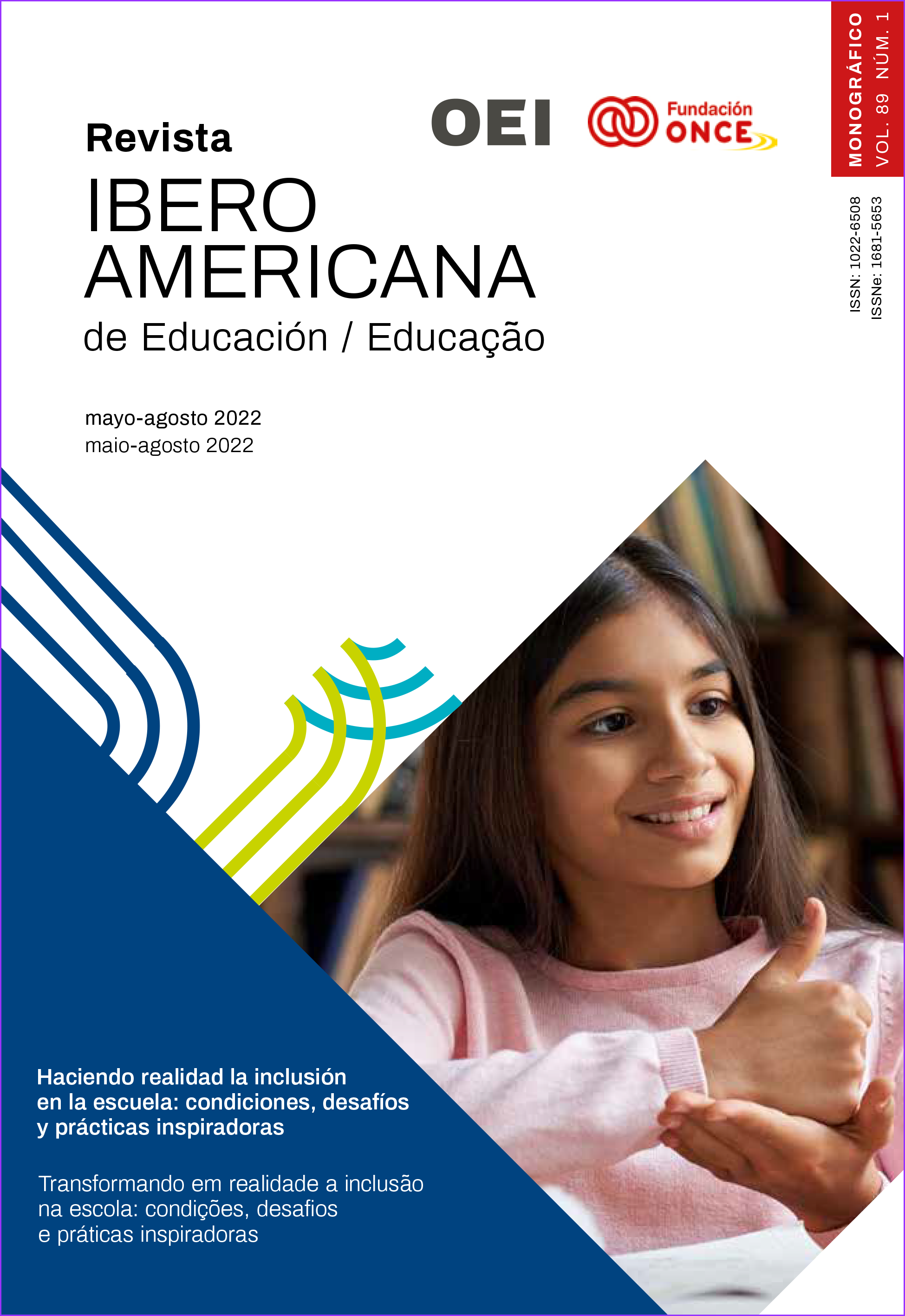Reading strategies to help text comprehension and interpretation by students with ADHD: a case study
DOI:
https://doi.org/10.35362/rie8914949Keywords:
Solé; attention deficit and hyperactivity disorder; reading; inclusionAbstract
The study presents the results of a qualitative study-case investigation that aimed to identify how the reading strategies recommended by Isabel Solé (1998) can help to develop text comprehension and interpretation by students affected by Attention Deficit and Hyperactivity Disorder. Hence, the performance of a student diagnosed with the disorder was assessed during the implementation of a reading proposal that used the strategies indicated by the author. The data were obtained with questionnaires answered by the participant, records contained in the logbook of the researcher, and video recordings of the meetings. The data analysis, from the assumptions of Content Analysis, indicates that organizing reading activities according to the strategies proposed by Solé (1998) favors and potentiates the development of text comprehension and interpretation by students with Attention Deficit and Hyperactivity Disorder
Downloads
References
Anadón, M. (2005). A pesquisa dita “qualitativa”: Sua cultura e seus questionamentos. UNEB/UQAC.
APA – American Psychiatric Association (1994). Diagnostic and Statistical Manual of Mental Disorders. Fourth edition. Washington (DC): American Psychiatric Association.
Barbosa, G. K. A., Rodrigues, A. M. R. & Oliveira, M. S. (2011). A utilização de estratégias de leitura: Reflexões sobre a habilidade da compreensão leitora em adolescentes. Revista Contemporânea de Educação, 6(11), 154-178.
Bardin, L. ([1977] 2016). Análise de conteúdo. Ed. revista e ampliada. São Paulo: Edições 70.
Barkley, R. A. (2020). TDAH: Transtorno do déficit de atenção com hiperatividade. Belo Horizonte: Autêntica.
Cantalice, L. M. (2004). Ensino de estratégias de leitura. Psicologia Escolar e Educacional, 8(1), 105-106. https://bit.ly/3x3isPe
Ciasca, S. M., Rodrigues, S. D., Azoni, C. A. S. & Lima, R. F. (2015). Transtornos de aprendizagem: Neurociência e interdisciplinaridade. São Paulo: Book Toy.
Costa, A. A. (2008). Direito e método: Diálogos entre a hermenêutica filosófica e a hermenêutica jurídica. Brasília: UnB.
DSM-5. (2014). Manual diagnóstico e estatístico de transtornos mentais: DSM-5. 5. ed. Porto Alegre: Artmed.
Gil, A. C. (1999). Métodos e técnicas de pesquisa social. São Paulo: Atlas.
Gil, A. C. (2007). Como elaborar projetos de pesquisa. 3. ed. São Paulo: Atlas.
Kleiman, A. (1998). Ação e mudança na sala de aula: uma pesquisa sobre letramento e interação. In R. Rojo (Ed.), Alfabetização e letramento (pp. 173-204), Campinas: Mercado das Letras.
Lüdke, M. & André, M. E. D. A. (1986). Pesquisa em educação: Abordagens qualitativas. São Paulo: EPU.
Martins, M. H. (1994). O que é leitura? 19. ed. São Paulo. Brasiliense.
Monteiro, M. M. (2007). Área de projecto: Guia do aluno. Porto: Porto Editora.
OMS – Organização Mundial da Saúde. (1993). Classificação de transtornos mentais e de comportamento da CID-10: Descrições clínicas e diretrizes diagnósticas. Porto Alegre: Artes Médicas.
Pastura, G., Mattos, P. & Araújo, A. P. Q. C. (2005). Desempenho escolar e transtorno do déficit de atenção e hiperatividade. Revista de Psiquiatria Clínica, 32(6), 324-329.
Pereira, J. D. S. (2016). O desenvolvimento da competência leitora no aprendente TDAH na escola: Uma ajuda estratégica em leitura de textos didáticos. APRENDER – Cadernos de Filosofia e Psicologia da Educação, X(16), 65-85. https://bit.ly/3t4MY8E
Pimentel, G. (2007). Biblioteca escolar. Brasília: UnB.
Solé, I. (1998). Estratégias de leitura. 6. ed. Porto Alegre: Artmed.
Triviños, A. N. S. (1987). Introdução à pesquisa em ciências sociais: A pesquisa qualitativa em educação. São Paulo: Atlas.
Wells, R. H. C., Bay-Nielsen, H., Braun, R., Israel, R. A., Laurenti, R., Maguin, P. & Taylor, E. (2011). CID-10: Classificação estatística internacional de doenças e problemas relacionados à saúde. São Paulo: EDUSP.
How to Cite
Published
Issue
Section
License
Any authors who publish with this journal accept the following terms:















